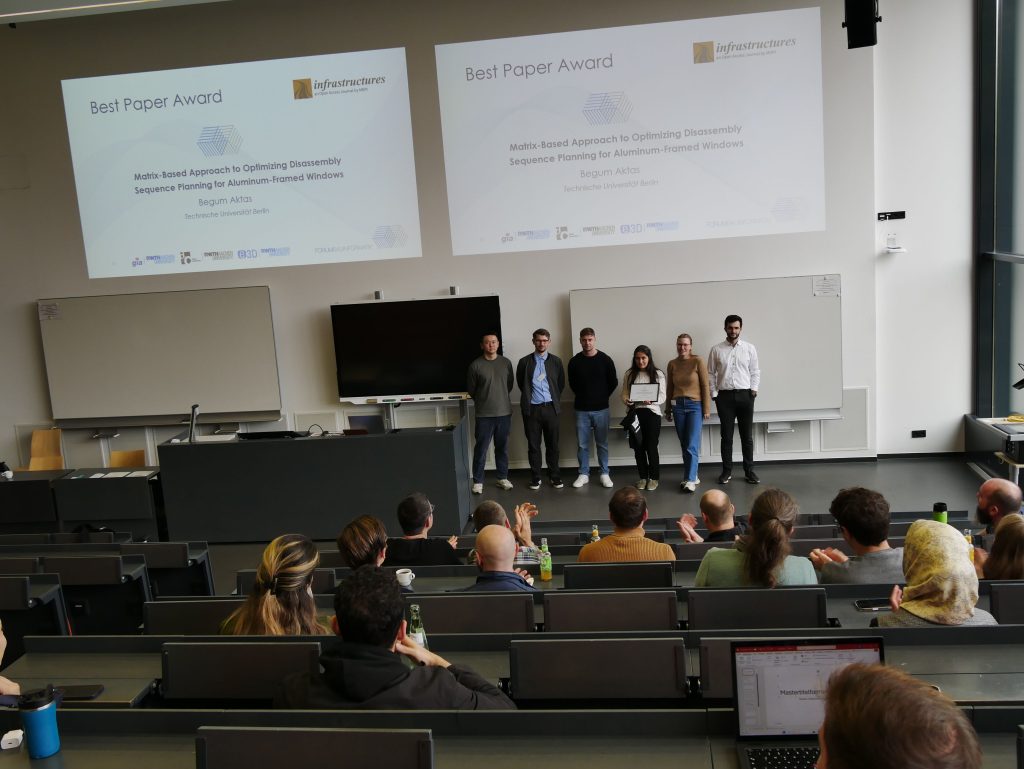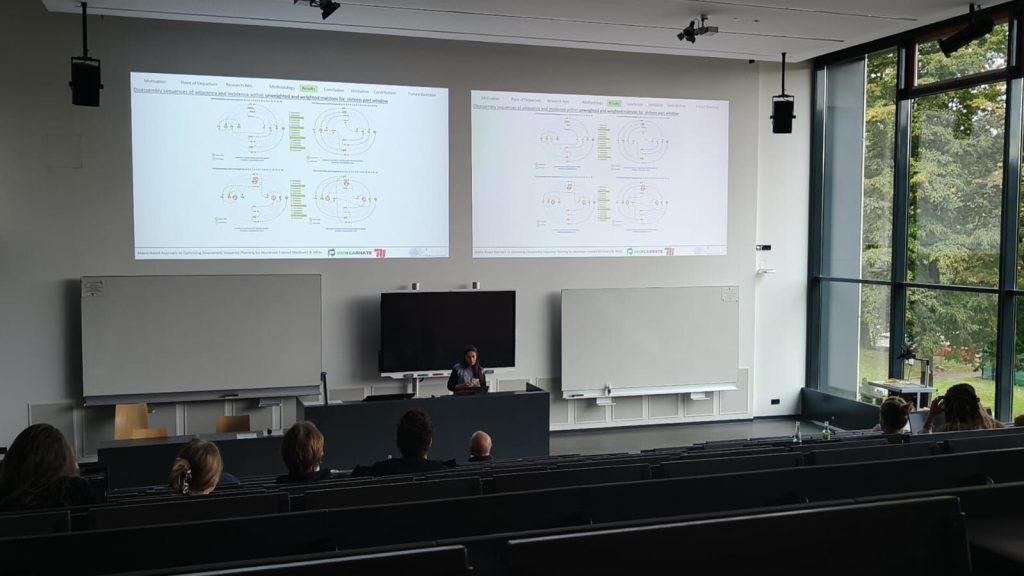At this year’s Forum Bauinformatik (FBI), hosted by RWTH Aachen University, our colleague Begüm Aktaş from our coordinator Technische Universität Berlin received the Best Paper Award in the Sustainability category for her work “Matrix-Based Approach to Optimizing Disassembly Sequence Planning for Aluminum-Framed Windows.”

The Forum Bauinformatik is one of Europe’s most established academic gatherings in computing in civil engineering — a meeting by young scientists, for young scientists that has been running annually since 1989. The 2025 edition brought together 120 participants, 57 papers from 30 universities, and 11 sponsors, over three days of sessions and thematic events.
Begüm’s contribution focused on computational design methods that support disassembly planning and reuse in construction — a key pillar of Reincarnate’s circular value-flow research. Her paper introduces a matrix-based approach to generating geometrically feasible disassembly sequences for aluminum-framed windows by capturing adjacency and incidence relations from CAD cross-section drawings. The method adapts Dijkstra’s shortest path algorithm within a parametric modeling environment, enabling efficient sequence generation that considers topological, semantic, technical, and material-sensitive relationships.

Disassembly plays a crucial role in the circular economy, especially for high-value building products such as windows that consist of multiple materials, layers, and subsystems. Their complexity makes dismantling challenging, requiring detailed planning to optimize recovery and minimize waste. By formalizing geometric and material relations through matrix representations, the method transforms disassembly into a data-driven process, providing a foundation for automation and reuse strategies aligned with Reincarnate’s vision for circular construction.
This recognition underlines the project’s ongoing commitment to advancing digital methods for circular construction and strengthening links between research, innovation, and sustainability education in Europe
